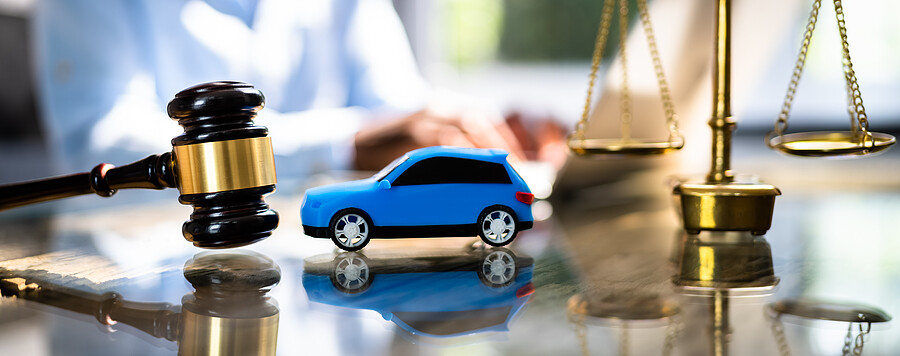People have the right to pursue a lawsuit if they experience a car accident at no fault of their own. When you sue the negligent driver, you might find the discovery phase to take some time to complete. During the discovery, one or more depositions may occur.
Depositions can be stressful at times, but they can be crucial in a case. They can influence what happens afterward. If you are unsure what might happen after a deposition, you can ask your lawyer about the next steps.
What Is a Deposition?
Attorneys may hold multiple depositions when a car accident lawsuit reaches the discovery phase. The facts of the case determine the need for one. Depositions put statements from witnesses on record before a trial. They help show a complete picture of what took place.
Attorneys hold depositions for two reasons. One purpose is to learn what the witness knows, and the other is to preserve the witness’s testimony. One witness’ statement might undermine your case, so you should know what the person may say at the trial beforehand.
Under oath, witnesses answer a series of questions about the events related to the lawsuit. Once your lawyer knows of potential weak areas in your case, they can prepare to build a stronger argument. A deposition usually occurs at an attorney’s office, and a court reporter copies what people say word-for-word.
However, remote depositions have become popular. The legal system saw a 400 percent increase in recent years. Both parties can attend the same deposition, and most people record the event with a video camera. Some lawyers video record if the witness cannot attend the trial.
The depositions can play in front of a jury. Some lawyers find video depositions to be more effective with the presentation of witness testimony than a witness.
How Long Does a Deposition Take?
If you sit in on a deposition, you might wonder how long the process will take. While necessary, the event can feel slow. The amount of time varies for each one. You could wait 30 minutes or up to eight hours. If the attorney does not get through all the questions, everyone has to return another day.
The deposition’s duration depends on the attorney and the number of questions. Sometimes, a lawyer might ask the same question differently if the person does not give a straight answer. Repeated questions can take up time.
Heavily-involved witnesses could require multiple days for a deposition. Other contributing factors include breaks and technical difficulties. For example, the camera audio could suddenly fail to work in the middle of a question. A person could run late and affect the schedule as well.
Your car accident lawyer can estimate how long they plan to hold a deposition. However, you should expect the possibility of the process ending early or late.
After a Deposition
After a car accident deposition concludes, the court reporter takes what they recorded and produces a written transcript. The attorneys can obtain the transcript within the next few days. The document is necessary since it establishes what the witness said or did not say about the collision.
Both sides take time to review the transcribed deposition. Your lawyer might notice an inaccuracy or error, especially if the defendant used witnesses that contradict their claims. Inconsistencies could signify that the other side tried to influence the witness statement.
Incorrect information can affect your chances of a settlement or lower the compensation amount. Your lawyer can review the evidence to see if the person lied under oath. They can correct the record to show the defendant bears most of the responsibility.
After the deposition, attorneys determine if they need to interview another witness. In some cases, your lawyer might bring in an expert witness to dispute the other side’s facts. The opposing party might request a medical exam to see if your injuries are severe.
The lawsuit continues with the discovery phase until both parties have gathered the evidence they need. Then, the case is ready to move on to negotiation and mediation.
Will a Car Accident Lawsuit Go to Trial?
Many people expect they have to appear in front of a judge. However, most vehicle collision claims resolve before they make it to the courtroom. You may have a high chance of a successful settlement. After the discovery phase, both sides can sit down for mediation.
A trial can mean more litigation costs, so each side likely wants to comprise beforehand. During mediation, a neutral third party meets with the lawyers. The mediator helps the plaintiff and defendant resolve a case. While they make negotiations smoother, they do not declare fault or the compensation amount.
Usually, both sides can reach an agreement. In a couple of cases, one or both parties are not happy with the terms. As a result, they have to prepare for a trial.
The chances of a favorable outcome decrease for the plaintiff. For car accident lawsuits, an estimated 57 percent of people win their claims.
A Car Accident Trial
During a car accident trial, each side presents their arguments in front of a judge and jury. The attorneys start with opening statements. The plaintiff generally gives a statement first, and they use the time to provide their side of the story. Each side establishes what they will prove or refute.
After the opening statements, the lawyers present all the evidence they collected. Evidence can include physical evidence, witness testimonies, medical records, and photos. Your attorney would show the defendant was responsible for the accident and the severity of your injuries.
The defendant might present evidence to contradict your version of events. They could call in a doctor with a different opinion, and they might have photos or videos as well.
The trial concludes with closing arguments. Closing arguments are the last chance for an attorney to persuade the jury. Then, the jury deliberates the facts of the case and reaches a verdict. The length of the deliberation depends on how quickly the parties can agree.


